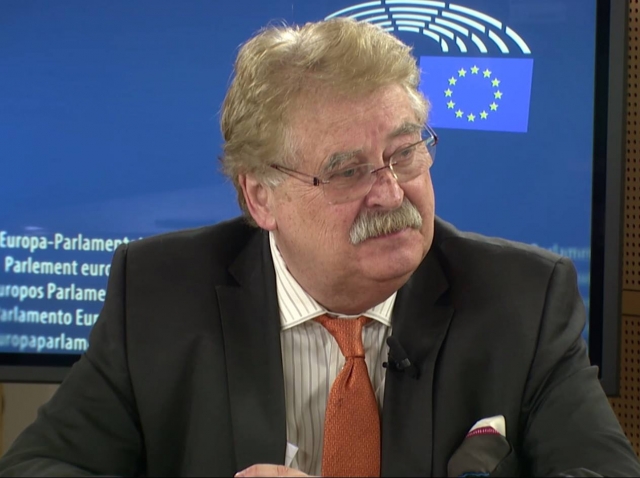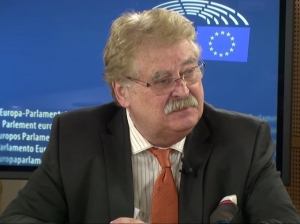The Norway Model for Georgia’s EU Future?
INTERVIEW
Born, married, MEP - is how then German Bundeskanzler Helmut Kohl summarized (sarcastically) the longstanding European Parliament servant Elmar Brok’s resume. Ahead of Easter, Panorama Talk Show and GEORGIA TODAY sat down with the veteran German delegate to discuss Georgia’s European aspirations.
With visa liberalization secured, what should Georgia do next?
Well, we have visa liberalization, we have the Association Agreement and we should build on that. I think this relationship can become closer and as for the next step, with the implementation of the Association Agreement, we could perhaps move to something like the Norwegian solution. Which, in turn, will bring Georgia closer to the internal market and Schengen and such issues.
Norway isn’t a member of the EU. What about Georgia’s membership?
Every European country can apply for EU membership provided they fulfill the conditions outlined by the Kopenhagen criteria. But then again, there is a question of the European Union’s current integration capacity. At the moment, we find ourselves in a reality where we face several kinds of crises which we want to find a way out of. This is also a moment of concentration for the EU, when we have to sit and think what to do next after so many enlargements. But once again, the right to apply is there and that’s why I mentioned the Norwegian model - it would secure already about 30-40 % of the Acqui Commutaire of the EU. So, I think it’s a step by step solution for Georgia: it looks more innocent, more effective and more realistic.
April 9th, a symbolic day for Georgian independence, was marred by South Ossetia’s “referendum” and "presidential elections." Brussels followed its course of non-recognition, but is there more to be done?
This is an issue which has to do with Russia. Add that to the issues of Transnistria and Donbas in Eastern Ukraine: at the end of the day, what Russia is doing is creating frozen conflicts everywhere, to manipulate them and destabilize these countries. And this is a very principal question in our relationship with Russia. Ironic as that may sound, the question we need to ask is whether Russia is really in good face to solve any conflicts in the world? And we have to demand more reliable and credible cooperation from Moscow.
With a second referendum on joining Russia expected in Tskhinvali, and FM Lavrov opening a Russian embassy in Abkhazia, what can Georgia do?
The best way is to make Georgia, Ukraine and such countries successful economically, politically and in the sense of the rule of law. This would be the most dangerous thing to Mr. Putin, because then he would have to explain to his own people how that came about. And on the other hand, this will strengthen the will and belief of people in these countries in the European solution.
Most Georgians are in favor of the European way. What would be your advice to the Georgian gov’t and society to successfully get closer to the EU?
We have to see to that that the Georgian economy is well adjusted and adapted to the EU’s internal market economy. And the internal reforms program, the so-called transformation program that we have, is really a great asset here. The utmost importance is in increasing the competitiveness. Education for innovation, that’s key too. There is a lot to do, but then you have to assess the other possibilities – You cannot look to Russia for sustainability. Russia cannot support the Georgian economy because it has no money either and it has a very limited market. For a lot of reasons, for countries like Georgia and Ukraine, the only chance to have positive political, economic and social development is in cooperation with the European Union.
Do you have a message of goodwill for Georgia and Georgians over the Easter period?
Look into the future with hope. See what was already achieved and not just what couldn’t be achieved yet. See the positive things. Be optimistic! It gives you more courage to move forward.
By Teona Lavrelashvili & Vazha Tavberidze












